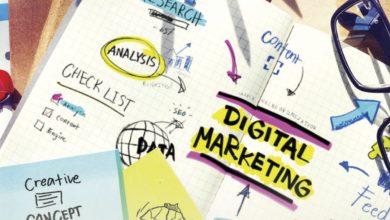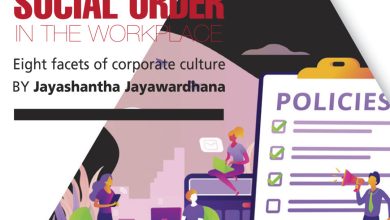THE BELIEF SYSTEM
DON’T HOLD BACK
Archana Law suggests ways to overcome restrictive beliefs
Do you believe in yourself or are your beliefs holding you back? There’s no limit to human ingenuity and no one knows what people can do until they try! Ongoing research proves that human potential is greater than we can possibly realise. Here are some pointers…
PLACE LIMITS Limiting beliefs are what we believe about the world and ourselves, and accept them as reality even though they aren’t so. These assumptions become part of the filter through which we view our world and they’re usually formed over many years – based on inputs from our family, teachers and friends, as well as interpretations of our experiences.
Our brains are very efficient at establishing patterns of behaviour. So once these beliefs get into our heads, we start to form patterns of behaviour and reinforce them. Let’s say that in school, your piece of art was different from the others. Your work would have either made you proud of being unique; or embarrassed, thinking there was something wrong with it – based on feedback – simply because it was different.
No matter how you heard this comment, it would reinforce your original belief and go on to affect how you filter future experiences in life – each building on the last, and developing your own personal lens through which you view and interpret the world. Some of these beliefs help you while others hold you back. Therefore, these are considered limiting beliefs.
IDENTIFY LIMITS Pick an important aspect of the work you are doing. Find a quiet place without interruptions and start ‘listening’ to all the thoughts that make you feel nervous, worried or unsure. Herein lie your limiting beliefs around that subject.
Next, pretend that your best friend is in the same position. What would you tell him or her to encourage or warn them about possible derailing? How are these thoughts similar to or different from your personal discussions? What does this tell you about your beliefs?
Look for emotional cues in limiting beliefs. Talk honestly to someone you trust – like your coach, sibling, partner or best friend. Describe everything that excites you about a project; and likewise, share everything that scares you about pursuing it. Also take note of what you’re talking about when you are most emotional. Ask the other person whether this is a good or bad idea for you and note your response to their reply – particularly any areas of agreement and disagreement. The areas that you discuss and feel mostly about are those where you’ll find your most powerful limiting beliefs.
It’s interesting to note that often, the things that you believe to be true are your most limiting beliefs. For most of us, the big belief is that we can either have time or money but not both. This is not a fact because one can look at the world and see plenty of people who are blessed with both. But when we look at our own lives, that limiting belief creeps in and affects the decisions we make.
We’re all excellent storytellers especially when it comes to spinning a tale as to why we failed.
Performance coach and a Director at Johnson & Johnson’s Human Performance Institute Jennifer Lea says: “We have an infinite capacity as human beings to tell ourselves stories; and the most important one we tell ourselves is about ourselves.”
She says there are differences between the skills that we haven’t developed yet, and the self-imposed limitations we place on ourselves through uncertainty and fear.
OVERCOME LIMITS Look out for those limiting beliefs. When your beliefs refer to an ambiguous ‘they,’ there’s a good sign that they’re manufactured and not real – ‘they’ will never give me a chance, ‘they’ have their own preferences, ‘they’ will think I’m too young, old, inexperienced etc.
Pushing forward to meet your goals is an uncomfortable exercise; but avoidance because of feeling vulnerable or being afraid of rejection is simply denying yourself the potential to succeed.
Build confidence with small goals and support systems. Celebrating the small victories is critical because you’re going to have new goals and aspirations. External perspectives, training, mentorship and supportive people who believe in your ability are also important – especially when you’re feeling nervous, discouraged or vulnerable.
Modelling is probably the most important neurolinguistic programming (NLP) skill we can develop. By observing and copying how others achieve results, it’s easy to try different approaches and see what works for us. Pick up successful habits from your role models and adapt them to your own style.
Give yourself regular periods to rest and think. By creating some ‘mental space,’ you’ll be better equipped to come up with solutions to challenges.
In the words of Somerset Maugham: “If you don’t change your beliefs, your life will be like this forever. Is that good news?”






